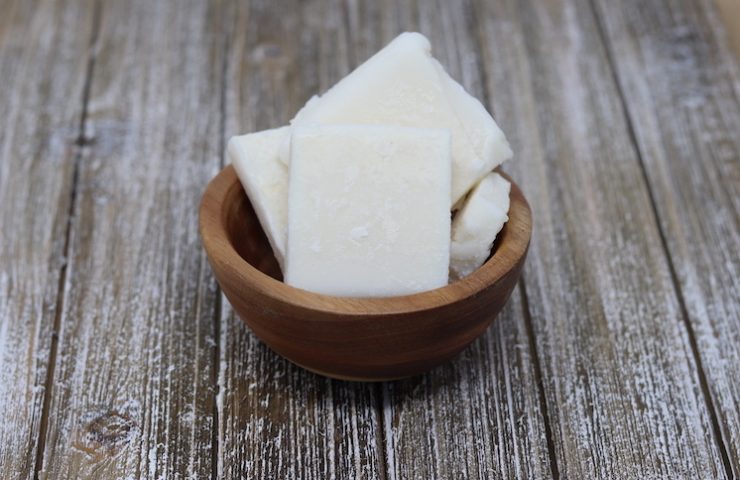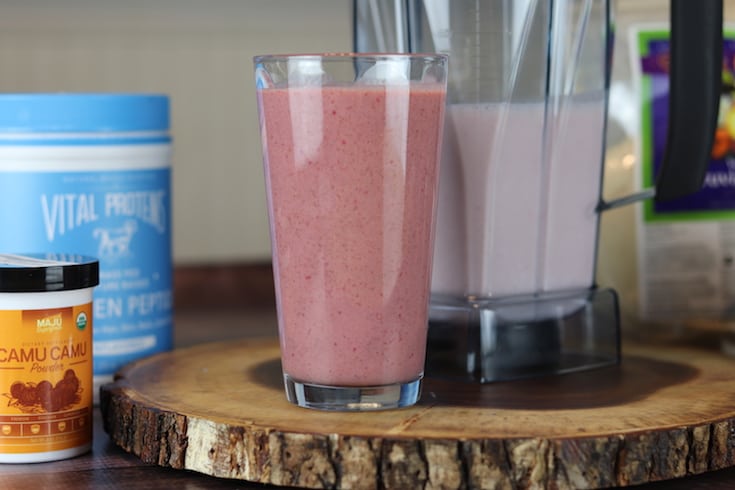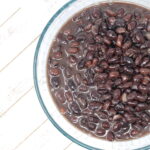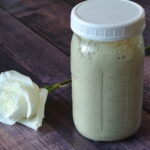So much of the nutrition information that the public is given is confusing, conflicting, and often misleading. There are numerous reasons for this and I will go into them later in the post. First, let’s answer the question at hand: Is Gluten-free Really Healthier ? The answer actually depends a lot on you! Let’s dive into it!
Who Should Eliminate Gluten and Why?
The following types of people need to avoid even micro-exposures to gluten. The protein in wheat can be misidentified by the body (a process called molecular mimicry). The immune system sees this protein and believes it is an antigen (a foreign substance). In it’s attempt to protect you from this perceived invader, the immune system brings out the heavy artillery. Unfortunately the collateral damage is your own body tissue. Where this occurs depends on where your personal “weak link” is.
- Celiacs: Of course someone with Celiac disease has to be extremely cautious about gluten exposure, but did you know that it takes an average of 11 years and multiple doctors to get a positive Celiac diagnosis? By that time, the villi of the intestines are completely damaged. You do not have to have intestinal symptoms to have Celiac disease.
- People with a known Food Sensitivity to Gluten: Whether you had a food sensitivity done or you did an elimination diet, (more on that below) if you know that you are sensitive to gluten, you MUST keep it completely out of your diet to avoid autoimmunity!
- Anyone on the Autoimmune Spectrum: Autoimmune diseases take 5 to 20 years to develop! During that time a silent onslaught against the tissues in your weakest link are occurring. By the time you have symptoms enough to be diagnosed, the damage is done. All autoimmunity starts it the gut.
- Anyone with Intestinal Permeability: Unfortunately, this is most of us in the modern world. What causes the intestines to become permeable (aka Leaky)? Stress, sugar, refined carbs, alcohol, pesticides, toxic chemical exposure, antibiotics (both in our food supply as well as those prescribed to us), eating foods you are sensitive to, and, most notable, poor digestive function.
- Anyone with Poor Digestive Function: If you do not make sufficient hydrochloric acid (it’s estimated that 90% of Americans don’t), then you will not be properly breaking down your food. As a result, food will sit too long in your stomach and ferment and putrefy. This inflames your intestines and over time the tight junctions open up and allow these not fully digested (and large) molecules into your bloodstream. This is when the immune system gets involved and starts its attack. Your tissues are the unfortunate victim of mistaken identity as stated above.
- Anyone with IBS, IBD, Colitis, Crohn’s, or SIBO: First of all, all of these conditions are associated with intestinal permeability and should remove gluten completely from their diet. Second of all, gluten is the worst offender when it comes to inducing food sensitivities. It is now known that it opens the tight junctions of the intestines for 5 hours after consumption (even in those without a gluten sensitivity!). This allows larger particles of everything you are eating to enter your blood stream and trigger your immune system. All of these conditions show great improvement when the person’s food sensitivities are removed. If you have any of these, remove gluten asap and get an MRT food sensitivity test to find out what other foods are inflaming your gut.
What Should Gluten-free person Eat Instead?
After reading the above you may have realized that you fit into one or more of the categories. Unfortunately, a common pitfall for someone going gluten-free is to start buying gluten-free breads, crackers, pasta, etc. Many of the common gluten-free flours are just not nutritious enough to replace wheat. Also, most processed foods use oils like soy, canola, and other vegetable oils that are extremely toxic to your health!
Three notable nutrients that you may be losing out on after cutting out wheat are:
- Vitamin E:
- B-Vitamins:
- Resistant starch: You will want to replace wheat with starchy vegetables like sweet potato, parsnips, and carrots to be sure you are getting enough resistant starch to feed your microbiome.
Buckwheat:
A grain like buckwheat can also provide resistant starch, protein, B-vitamins and vitamin E. I make a buckwheat sourdough starter to make the nutrients in buckwheat more bioavailable (usable by your body). Here are some of my favorite Buckwheat Sourdough recipes.
- Buckwheat Sourdough crepes
- Buckwheat Sourdough pancakes and waffles
- Buckwheat Sourdough Pumpkin bread
- Buckwheat Sourdough Sugar Cookies
- Buckwheat Sourdough Ebelskivers
If you just can’t wrap your head around using a starter, try these Grain-free and Gluten-free Waffles.
How do I know if Gluten is a problem for me?
There are a couple of ways to determine if gluten is a problem for you.
- Do an elimination diet: This is the best route to take and is considered the gold standard. For three weeks, eliminate ALL gluten from your diet. This isn’t a case where a little bit here or there won’t hurt. You have to get it completely out of your system so that your immune system’s memory cells forget about it. Then, you can reintroduce it. Remember that gluten has a delayed reaction, so you will eat it and watch for symptoms for three days. (See below for a list of possible symptoms of a reaction). If no reaction, you eat it again and then watch for three days. Repeat this one more time. If no reaction occurs after all of this, then you do not have a gluten-sensitivity.
- Get an MRT (Mediator Release Food Sensitivity )test: This won’t test the specific protein gliadin, but it will tell you if wheat is an inflammatory food for you. You can, however, get a false negative if your immune system is depressed. To know that, you would need the GI-Map stool test.

Some of the Possible Symptoms of a Gluten Sensitivity:
- brain fog
- weight gain
- acne
- rashes
- constipation
- diarrhea
- hair loss
- stuffy nose
- dry skin
- itchy skin
- under eye circles
- water retention
- joint pain
- joint swelling
- stomach cramps
Where Does Gluten Hide?
Buy gluten-free versions of the following foods, or make these at home to be sure you are not exposed.
- soy sauce
- ice cream
- ketchup
- frozen french fries
- restaurant french fries
- prescription drugs (as a binder)
- salad dressings
- sauces
- spice mixes and seasonings
- processed food as an emulsifier
- other condiments
- boiullon cubes
- candy
- beer
- liquor
- oatmeal
- supplements
- crackers
- cakes
- other baked goods
- chocolate
- flavored teas
- artificial color
- baking powder
Other Names for Gluten:
- barley
- kamut
- rye
- food starch
- dextrin
- modified starch
- maltodextrin
- malt
- flavorings
- glycerides
- citric acid
Who Can Enjoy Gluten?
Anyone who has no known sensitivity to gluten, does not have leaky gut, is not on the autoimmune spectrum, but has robust digestive function (see a functional doc, or an NTP like me to determine this) can occasionally enjoy gluten. Unfortunately, this is a very small population. IF you are positive that you are one of the fortunate, read on below to see how to safely enjoy this food.
What types of Gluten are Safe?
The best way to eat gluten is to make it at home with unbromated, unbleached Einhorn flour and soured (as in sourdough). If home-baking isn’t your thing, then find a high quality bakery that makes bread and other items using
- Unbromated flour: Bromated flour can cause thyroid and kidney cancers and should be completely avoided!
- Enriched flour: Flour is enriched using synthetic vitamins. These are not absorbed well, meaning that they don’t do what you are intending them to do. Even worse the body views synthetic vitamins as toxins. Since the liver is taxed with the job of breaking down toxins for elimination from the body, this gives a lot more work. Go easy on your liver!
- Unbleached: Bleaching flour removed most of its nutrients!! Also, a byproduct called alloxan is produced which produces diabetes in lab rats. No thanks! Stick to unbleached flour. Freshly grind it if you can. Fresh flour has 40 percent more nutrient content than flour that was ground 24 hours earlier. Think about how long that flour sat on your grocery store shelved before it reached you.
- Einkhorn: This is an unhybridized form of wheat that is easier to digest.
- Sourdough: the process of souring bread makes the nutrients more available to your body as well as destroys harmful phytates that bind to the mineral in your food.
How Often Can I Safely Eat Gluten?
This one is up to you. It’s important to note, however, that gluten opens up the tight junctions in intestinal lining for 5 hours after eating even in those without a gluten sensitivity!! This means that you are truly rolling the dice. I would certainly not consume it every day. And definitely not multiple times in one day!! I am sensitive to gluten, so I don’t consume it, but if I weren’t I would save my gluten consumption for a well-crafted beer every now and then. 🙂
Do you eat gluten? Do you suspect you have a gluten sensitivity? Have you eliminated gluten from your diet? I’d love to hear from you!
Keep in touch!
We love pinning on Pinterest!
However, our favorite way to keep in touch is through email! Subscribe and never miss a post. Plus, get access to the Holistic Health Resource Library. There you can download ebooks, PDFs, and Homeopathic Remedy Cards by condition for FREE!
You will also get emails with information on how to incorporate true holistic healing into your life. Absolutely no spam!



















